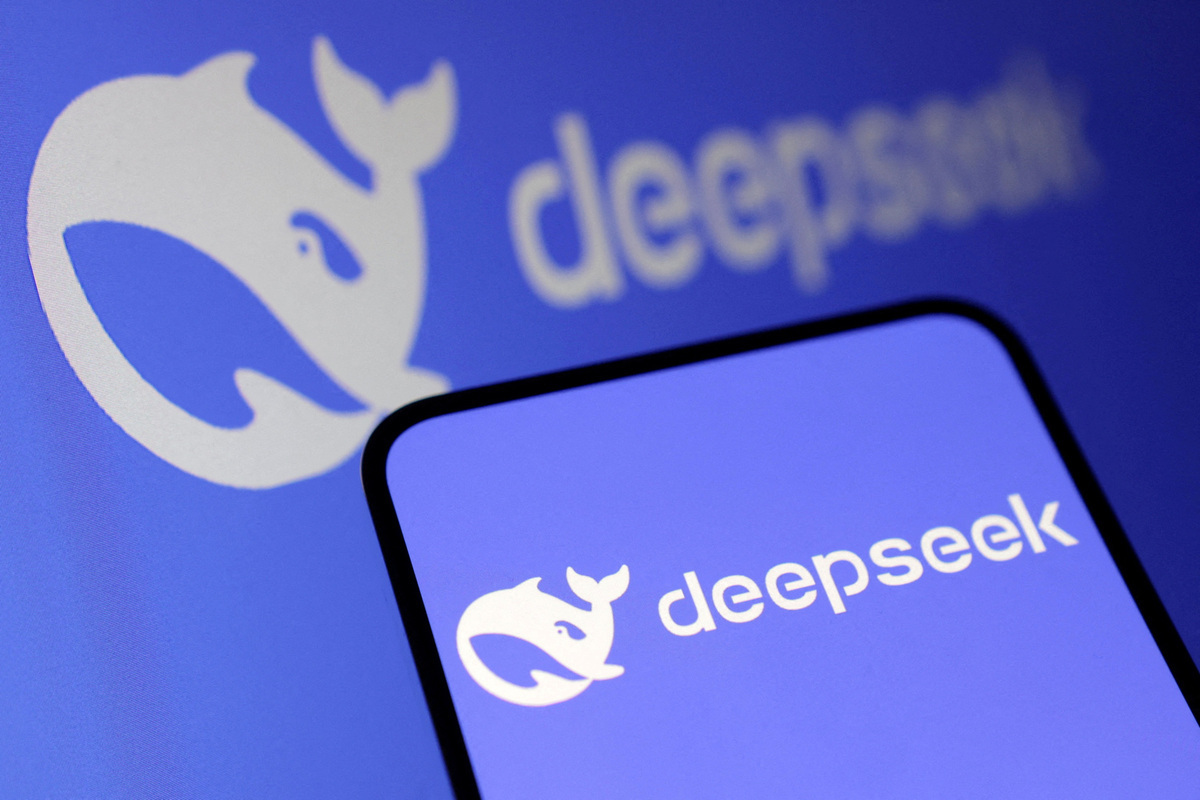
The DeepSeek logo is seen in this illustration taken Jan 27, 2025. [Photo/Agencies]
The meteoric rise of DeepSeek, a Chinese private artificial intelligence startup, sheds light on a new way for Chinese AI chip companies to seek breakthroughs amid Washington's tougher tech restrictions to challenge the dominance of US semiconductor company Nvidia and reshape the global computing landscape, experts said on Monday.
Highlighting that DeepSeek has developed a ChatGPT rival at a fraction of the reported cost of its US peers, they said its emergence shows that developing high-performance large language models does not require the exorbitant purchase of Nvidia's AI chips, and more Chinese chip alternatives can be used in the future.
The comments came after a string of Chinese tech companies, such as Huawei Technologies, said they had successfully adapted their products to support DeepSeek's large language model.
Yang Jian, chief technology officer of MetaX, a Shanghai-based chip company, said the training of DeepSeek's AI model has used graphics processing units, or GPUs, from Nvidia, but DeepSeek spent far less on Nvidia technology to develop its AI model than what US companies have spent.
Analysts at market consultancy Jefferies estimated that a recent version of DeepSeek's models had a training cost of only $5.6 million, less than 10 percent of the cost of Meta's Llama.
Yang said that DeepSeek's practice shows that advanced AI programs can be designed with less expensive chips, sparking a new wave of optimism for Chinese semiconductor companies which are making progress.
Currently, Nvidia's GPU holds a 98 percent share of the global AI training market, Yang said. "But by the end of this year, some large language models will be trained on Chinese AI chips, with the trend becoming more apparent in 2026," he added.
"The Chinese market will gradually evolve," he said. "Nvidia will be one part of the computing infrastructure and domestic chips will be another. Global computing power will become two parallel lines."
The recent adoption of DeepSeek by cloud providers such as SiliconFlow, using GPUs from Chinese companies such as Huawei and Moore Threads, showcases the growing confidence in domestic chips.
SiliconFlow said it has run DeepSeek on its cloud services supported by Huawei's Ascend AI chips, achieving performance comparable to AI services deployed on Nvidia's high-end GPUs.
Wang Hua, vice-president of AI and cloud computing at Moore Threads, said that based on its self-developed GPUs, the company can quickly deploy inference services of DeepSeek's AI models.
Pan Helin, a member of the Ministry of Industry and Information Technology's Expert Committee for Information and Communication Economy, said DeepSeek has developed a new technical approach for large language models that saves on computing power. It could spur the wider use of domestic processors, as Washington bans the export of Nvidia's most advanced chips to China.
"DeepSeek's success demonstrates a way to overcome the geopolitical barrier of US' tech bans, highlighting the importance of innovation and adaptability in achieving strategic goals," Pan added.
According to experts, Nvidia's GPUs have an edge in terms of their computing power and ecosystem maturity. As a result, AI models such as DeepSeek are unlikely to completely detach from Nvidia's ecosystem in the short term. However, in the long run, advancements in domestic alternatives, algorithmic optimization capabilities and increased industry emphasis on supply chain security will gradually reduce dependence on a single vendor.
"This process will take time and requires more domestic technological breakthroughs, but it is an irreversible trend. In the future, the global AI chip market will not be dominated by a single company," said Wang from Moore Threads.
masi@chinadaily.com.cn